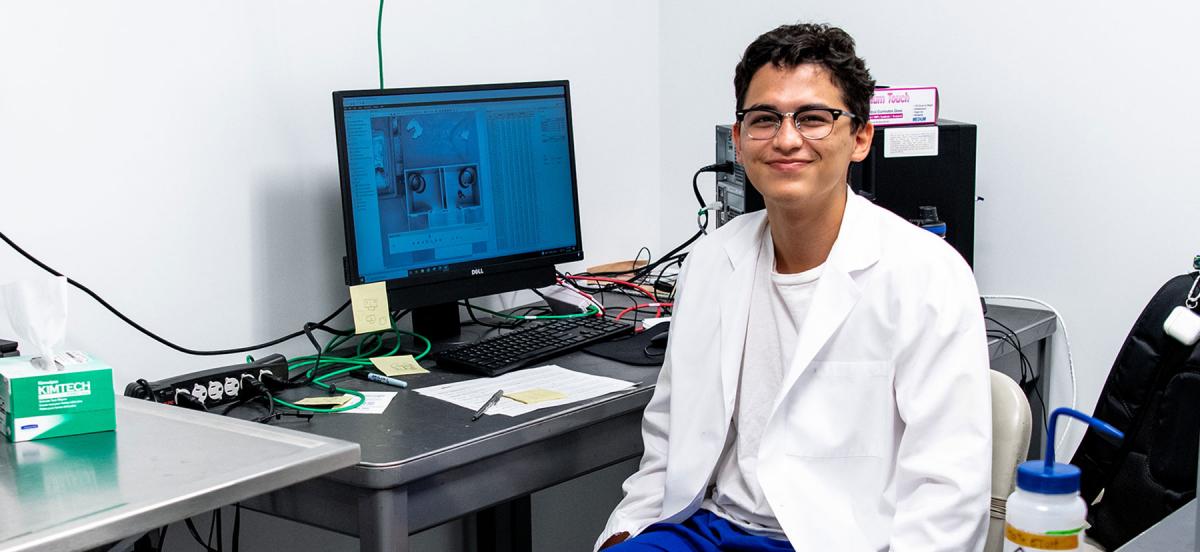Summer Centered: "Of Mice and Man" with Brandon Alonso '22

Photo by Holden Blanco '17.
Details
The psychology major is studying the effects of estrogen withdrawal on mice in Assistant Professor of Psychology Laura Been’s lab this summer.
Hormones affect what we do and how we feel every single day. This summer, Brandon Alonso ‘22 is investigating what behaviors are caused by fluctuations in one particular hormone, estrogen. Thanks to support from the Koshland Integrated Natural Sciences Center, the psychology major is working in Assistant Professor Laura Been’s Behavioral Neuroscience lab studying the effects of postpartum estrogen withdrawal on adult female mice. Having taken interest in her research about hormones and behavior, Alonso contacted Been about opportunities in lab work.
“I learned through coursework about the complicated way in which hormones, the brain, and behavior interact with one another, and I knew that this experience would allow me to begin parsing through those interactions,” he said. “Additionally, I felt that this experience would prepare me in a variety of ways, which include gaining exposure to a laboratory setting, learning how to handle laboratory equipment, and acquiring new techniques.”
Alonso's work with Been complements the focus on the relationship between hormones, behavior, and the brain in his psychology and neuroscience courses. With lab partners Leo Costa ‘23 and Roy Simamora ‘22, Alonso is using a hormone-simulated pseudopregnancy model (HSP) to examine the behavior of adult female mice during the postpartum period.
“In most mammals, estrogen levels increase dramatically during pregnancy. Once the female gives birth, there is a steep drop in estrogen, which has been hypothesized to be related to postpartum psychological disorders,” Alonso explained. “To mimic these hormonal fluctuations, rather than having an actual pregnancy, we do daily estrogen and progesterone injections on the mice, which reflect those levels seen during early, middle, and late pregnancy. After ‘pregnancy,’ a group of mice receives no estrogen. To capture any changes seen in mood during this estrogen-withdrawal state, we have also developed two protocols used to measure motivational behaviors—experiments which we are currently conducting—and will tentatively look at any changes within the brain.”
His favorite part of the experience has been the leadership skills he’s developed in the lab, as well as the technical skills he’s acquired in his day-to-day work: handling glassware, using lab equipment, measuring and making solutions, hormonal injections, mice caretaking, and surgical procedures such as brain tissue sectioning. The mice handling, however, has been quite difficult. “Before this laboratory experience, I was extremely squeamish around rodents—I did not want them anywhere near me!” he said.
But he’s grown comfortable with the rodents over time, thanks to Been and his labmates, and he’s thankful for such an engaging and challenging learning experience. “Overall, this experience has given me the opportunity to take more initiative on different projects and learn how to conduct research collaboratively,” he said.
Summer Centered” is a series exploring our students’ campus-supported summer work.



